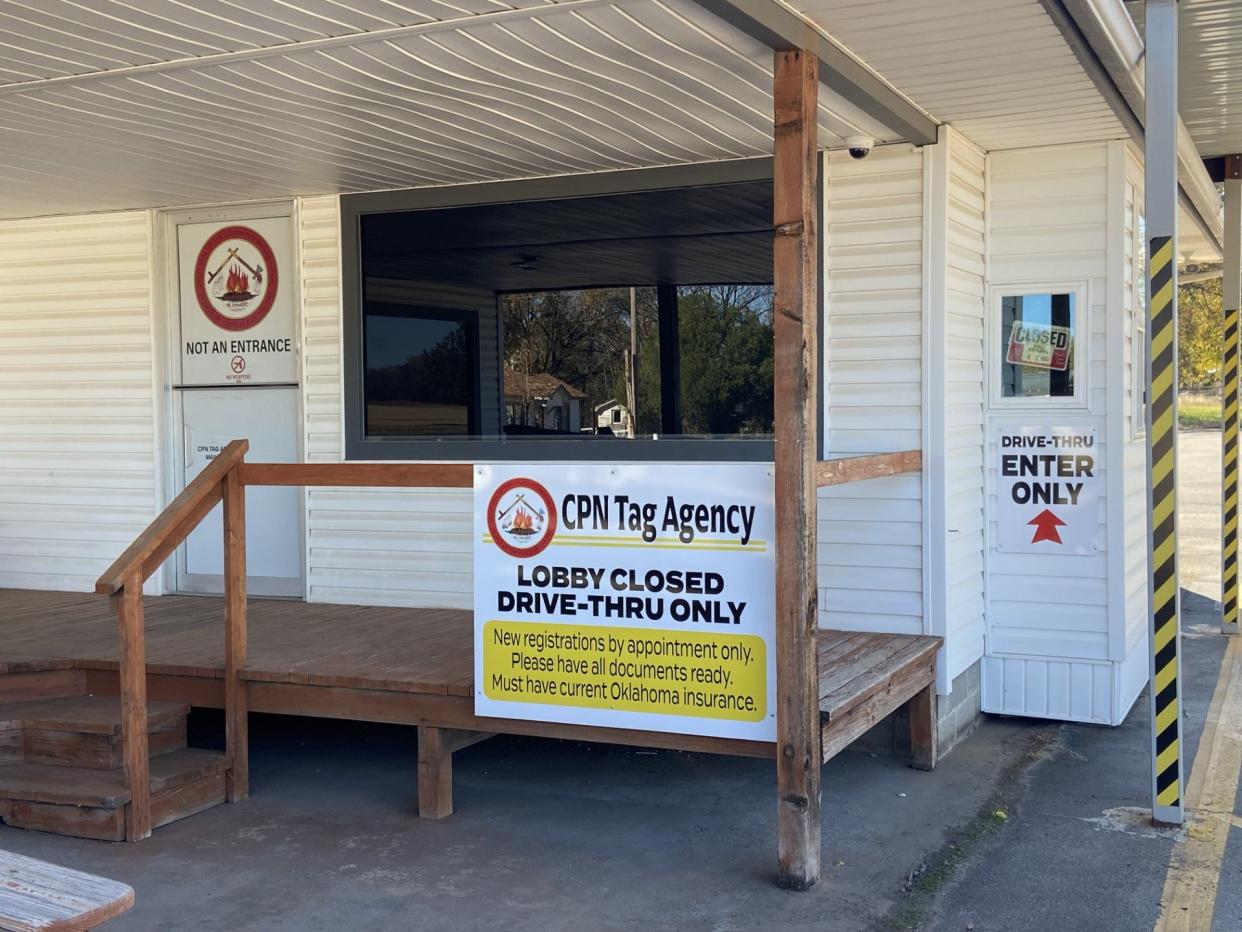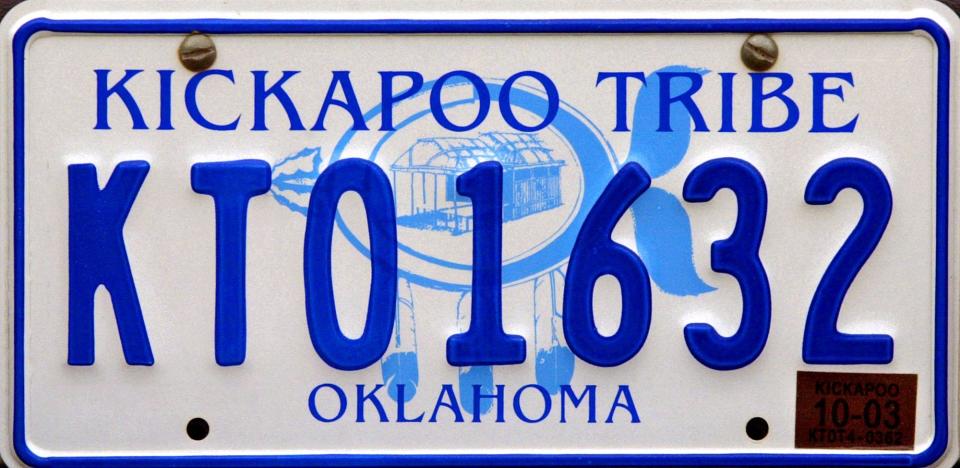Tribal nations, lawmakers have questions over 'out of the blue' ticketing for tribal tag

- Oops!Something went wrong.Please try again later.
Although the Oklahoma Legislature passed a law in 2011 directing the Oklahoma Department of Public Safety to address problems between the state and the tribal nations that issue car tags, no changes were made to avoid the confusion that erupted last week over tribal tags.
The lack of action has frustrated lawmakers, tribal leaders and Oklahoma residents who are all trying to figure out how to respond to reports the Oklahoma Highway Patrol has ticketed at least one driver because of her tribal tag. Troopers cited her for failing to pay state motor vehicle taxes, because they said she was living outside of the area her tribe could issue plates.
The Oklahoma Highway Patrol and the office of Gov. Kevin Stitt both said police aren't starting to enforce a new policy, but are following a 30-year-old Supreme Court ruling. In practice, however, state police have recognized tribal tags as valid regardless of where tribal members live.
"We haven’t fought over this for 30 years," said Valerie Devol, attorney general of the Seminole Nation. "This is crazy."
Oklahoma law for tribal tags is in the books, but has anything been done with it?
In 2011, then-Gov. Mary Fallin signed Senate Bill 857, which directed the commissioner of public safety to develop a proposal for an intergovernmental cooperative agreement with all tribal governments that issue tribal license plates to collect and maintain ownership and registration information. The measure, written by state Rep. Joe Dorman, D-Rush Springs, and state Sen. Charlie Laster, D-Shawnee, was endorsed by the Department of Public Safety,
Stephen Greetham, special counsel for the Chickasaw Nation, said he believed nothing has been done with the law.
"I'm unaware of anything they've ever done with that statute," he said.
More: Oklahoma lawmakers told state police to work out tag agreement with tribes — 12 years ago
The 2011 law followed a 1997 memo from Bob Ricks, the state's then-commissioner of public safety. In that memo Ricks wrote that "a member of a federally recognized Oklahoma tribe, living in 'Indian Country' as defined by federal law and owning a vehicle bearing a valid license plate from the tribe has a valid license plate to be treated as the same as an Oklahoma license plate."
Ricks' memo said the tribal plates were also valid for "purposes of obtaining a motor vehicle inspection (which was required at the time) and for the purposes of obtaining an Oklahoma driver license." Since that memo, few tribal members were ticketed for their license plates — until, it appears, this fall.

How Oklahoma tribal nations have responded since the tribal tag ticket was first reported
Since the issue came to light, tribal leaders of more than a dozen tribal nations whose citizens could be affected have said they are working to address the matter. Last week, the Seminole Nation issued a statement which said the tribe was working with Attorney General Gentner Drummond's office "to gather as much information as possible to keep (residents) informed and provide registered owners a plan of action" if they were given a ticket for their tag.
Calvin Sharp, a member of the Seminole Nation and an attorney with the Phillips Murrah law firm, said the state's sudden enforcement of tribal car tags "comes at an odd time."
"It just seems strange that it's happening right now," he said.
State Rep. Toni Hasenbeck, R-Elgin, said she had several questions about the state's sudden clampdown on vehicle tags. "My concern is why is this happening right now?" she said. "This is sorta' out of the blue."
While the shift has caught many off guard, tensions between the state and tribal nations have been frequent under Stitt. He filed a lawsuit in July to try to overturn the Legislature's attempt to renew the state car tag compacts with the Cherokee, Chickasaw and Choctaw nations.
More: Oklahoma driver fined $249 over tribal tag says she was 'blindsided' by ticket
The Quapaw Nation said in a statement posted on Facebook that its officials viewed the move as a strategic attempt by the governor to push tribes to compact with the state.
“It is not illegal to be Native American in the state of Oklahoma at present time. Period,” the statement by the northeast Oklahoma tribe said. “So we would simply like to remind tribal members that no state law enforcement officer has the authority to stop people on the basis of their tags as long as the tags are proper."
Craig Harper, chief of the neighboring Peoria Tribe, said in a letter to tribal members Monday the tribe would continue to issue tags. He also said he was talking to other tribal leaders about next steps, “because we believe there is strength in aligning with all our tribal neighboring governments.”
Many Oklahoma tribal leaders are meeting this week in New Orleans, where they have gathered for the annual convention of the National Congress of American Indians. Several closed-door discussions are planned on issues specific to Oklahoma.
Devol confirmed that tribal leaders have been meeting to consider next steps. "Nothing is more unifying in Indian Country than Kevin Stitt," she said.
This article originally appeared on Oklahoman: Why now? Tribal tag Oklahoma ticket leads to confusion, frustration

